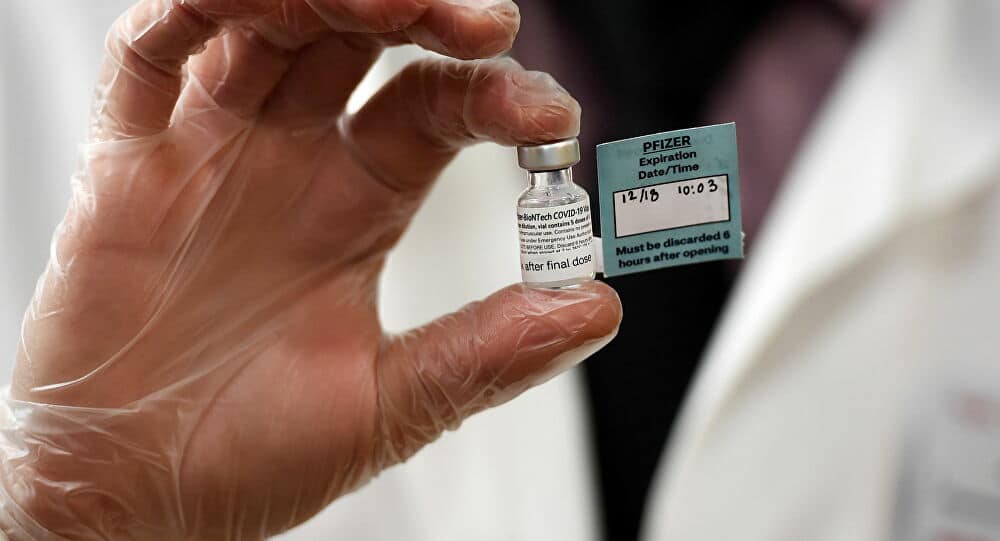Riportiamo a titolo di cronaca una nota del sito “Sputnik News” dell’omonimo vaccino russo con l’avvertenza del palese conflitto di interesse che può avere un produttore di vaccini che è in concorrenza con altri produttori. Pertanto i punti di vista e le opinioni espressi nell’articolo non necessariamente coincidono con quelli di Fedaiisf
Covid vaccine. The Pfizer Mystery. OPINIONS
It's a yellow and it's called Pfizer. Behind the announcement of Friday 14 January with which the manufacturing company informed that it was forced to reduce by 29 percent vaccine doses distributed in Europe (165 thousand doses less for Italy) a mystery is hidden. That mystery brings Joe Biden and his new anti-Covid plans into play on the one hand, and on the other hand the revelations about the Pfizer vaccine that emerged after a hacker group raided the digital archives of the EMA, the European Medicines Agency.
In both cases, Pfizer's inability to meet its promises and Europe's excessive dependence on the US pharmaceutical company would emerge. But let's start with the two possible explanations for the delay. The first is linked to the new 20 billion dollar vaccination plan with which, on Friday the 14th, Joe Biden he promised to Americans 100 million vaccinations in the first hundred days of his mandate. It is clear that that acceleration, in addition to the billions put on the table by the incoming president, could have led Pfizer's top management to neglect Europe to ensure that the new administration has an eye on it.
A second hypothesis, more worrying, instead attributes the delays to the need to improve the production lines to ensure industrial production with the same levels of effectiveness promised in the experimental phase. And given that Pfizer explains the slowdown in deliveries precisely with the need to modernize the Puurs plant from which the doses destined for the United States and Europe come out, one wonders whether the consignments delivered so far guarantee the initially promised effectiveness.
According to the emails, some industrial batches of the vaccine examined by the EMA at the time contained percentages lower than the 59% of "intact" RNA and therefore the samples examined during clinical trials containing between 69 and 81% of RNA would not be up to par. That discrepancy between experimental tests and industrial production is defined as "critical" in a November 23 email signed by an EMA official. And to make everything more worrying, the passages of other emails allude to possible pressure from the European Commission to speed up the approval of the vaccine. Pressures probably justified by the Covid emergency, but worrying if it turns out that only the improvements to the Puurs production lines could compensate for those problems. Also because there was news of the improvements only after the appearance of the documents on the web. However, at the origin of everything there is the failure of a European programming based on the agreements for the purchase of the vaccine and the financing of research signed by the EU Commission with six pharmaceutical companies (Pfizer-BioNtech, Moderna, Astra-Zeneca, Sanofi/Gsk, Curevac and Johnson & Johnson).
On the other hand, all these factors taken together help us understand why on 6 January Chancellor Angela Merkel announced her willingness to collaborate with Moscow to get to the production of the much reviled Russian vaccine "Sputnik V" in European plants. Aware not only of the inadequate planning put in place by the Commission, but also of the problems that arose during the approval phase of the vaccine and of the imminent fight with the USA for hoarding the doses, the Chancellor understood that collaboration with Moscow was evil minor.
I punti di vista e le opinioni espressi nell’articolo non necessariamente coincidono con quelli di Sputnik.
Related news:Vaccino Covid, Pfizer taglia altre 240 mila dosi. Riccardi: “È difficile lavorare con queste incertezze”
Vaccino Covid, azioni legali contro Pfizer. J&J: “Nostro siero a marzo”
